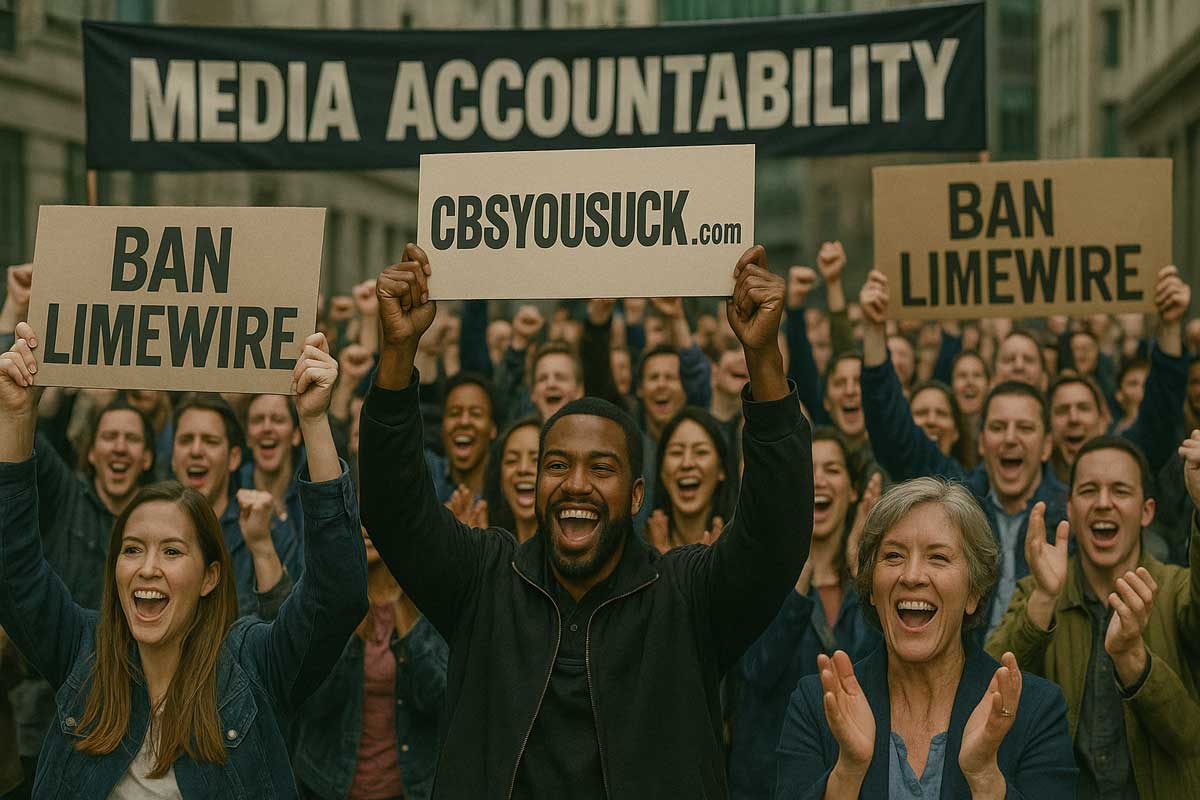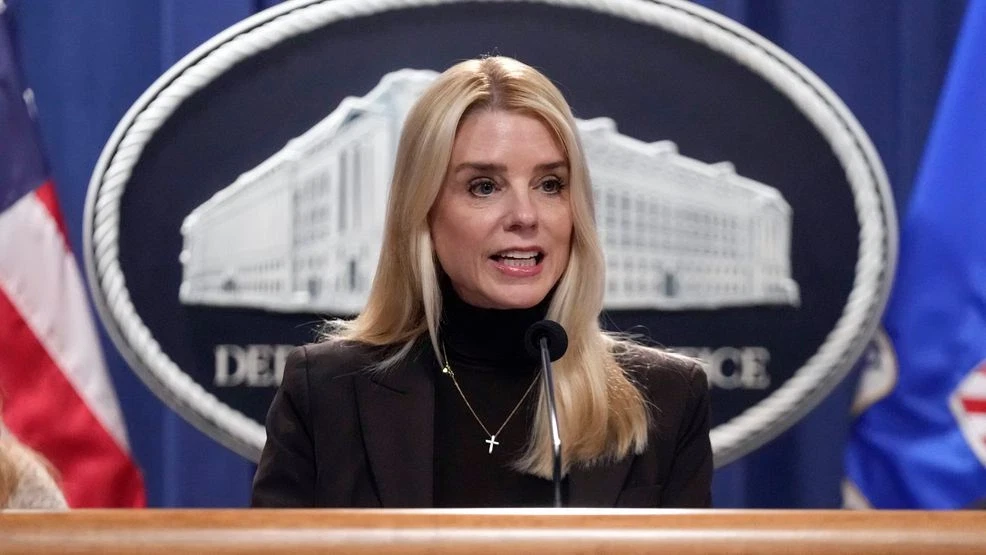From Grandbye to Operation Justice to NBA Broadcast TV Gambling Sites to LimeWire NFT
An advocacy report tracing how peer-to-peer networks, digital lawfare, and the modern sports-broadcast economy intertwined. From the early LimeWire era to the emerging NFT markets, this piece calls for accountability in technology, law, and media.

Mike Zeller on LimeWire’s Legacy
Legal Context: Judge Dale Fischer’s 2012 Order
In July 2012, U.S. District Judge Dale S. Fischer issued an order in Alkiviades David v. CBS Interactive Inc. (C.D. Cal. No. 11-9437) denying CBS Interactive’s motion to dismiss an inducement claim. The complaint alleged that the company’s CNET Download.com portal distributed and promoted peer-to-peer programs such as LimeWire and BitTorrent. Although the case ended without a finding of liability, the ruling signaled that even mainstream media portals could face judicial scrutiny for promoting software later linked to mass infringement.
The Silence That Shamed a City
Official estimates from international agencies indicate that over a million children worldwide are reported missing each year—many later found, some never recovered. Recent reports citing roughly 9 000 unreported or mishandled cases in London highlight how local failures mirror a global crisis. According to Interpol and the UK Missing Persons Unit, multiple cross-jurisdiction police investigations remain active across the UK, the Caribbean, and North America, examining how digital networks, media platforms, and law-enforcement systems intersect in these tragedies.
Sources: Interpol Global Crime Analysis 2024; UK Missing Persons Unit 2024.
How the System Failed and Let Grooming Networks Grow
Public records reveal a pattern of systemic failure, not a single mastermind. For years, reports were minimised, warnings ignored, and digital platforms left largely unmonitored. Inadequate resourcing, fragmented data-sharing, fear of reputational damage, and technology blind spots allowed grooming networks to persist. Meanwhile, mainstream download portals and messaging ecosystems normalised file-exchange tools that predators later exploited. Accountability lies with regulators who moved too slowly, agencies that missed the signs, and platforms that scaled faster than their safeguards. The provable chain is enough to demand reform.
“Transparency, cross-border data access, and audited safety protocols must become mandatory for any platform hosting file-exchange tools.”
Digital Lawfare Architects
Court filings in Antigua & Barbuda list several prominent law-firm figures —including attorney David Boies—as architects of digital-era “lawfare” strategies. The filings form part of a public civil case now before the Eastern Caribbean Supreme Court; no findings have been made, and all parties maintain their defences. Their inclusion illustrates how media, law, and technology have become intertwined in shaping online accountability.
From Gnutella to BitTorrent
The original LimeWire client was built on Gnutella, a fully decentralised network that inspired BitTorrent. Both allowed massive data distribution outside central control, disrupting media industries and exposing gaps in regulation.
The Kimba Wood Injunction and Aftermath
In 2010, U.S. District Judge Kimba M. Wood issued a permanent injunction in Arista Records LLC v. Lime Group LLC, ordering LimeWire to shut down and disable its network. While the official site closed, third-party clones and mirrors—such as LimeWire Pirate Edition and FrostWire—kept the code alive. Because installers had been replicated across hundreds of portals, the software remained downloadable long after the ruling.
“Even a federal injunction couldn’t erase LimeWire. Once file-sharing escaped into the wild, no court order could reel it back.”
Download.com Links Everywhere
At its peak, CNET’s Download.com—under CBS Interactive—was the Internet’s largest software mirror, hosting thousands of programs including LimeWire, FrostWire, and BitTorrent. Archived snapshots show the portal describing these programs as ways to “share music, movies, and more.” As blogs and forums reposted those listings, Download.com links spread globally. Even after the 2010 injunction, cached pages and mirrors persisted—demonstrating how a single corporate portal helped normalise software that regulators were trying to contain.

Download.com Links Everywhere
At its peak, CNET’s Download.com—under CBS Interactive—was the Internet’s largest software mirror, hosting thousands of programs including LimeWire, FrostWire, and BitTorrent. Archived snapshots show the portal describing them as ways to “share music, movies, and more.” As blogs and forums reposted those listings, Download.com links spread globally. Even after the 2010 injunction, cached pages and mirrors persisted—demonstrating how a single corporate portal helped normalise software that regulators were trying to contain.
The Gambling–Broadcast Convergence
In today’s sports economy, nearly every major broadcaster—CBS Sports, NBC Sports, ABC/ESPN, and FOX Sports—operates alongside betting or fantasy-gaming partners. This convergence of wagering, advertising, and live coverage has raised questions about transparency, data integrity, and how broadcast revenues interact with betting markets. Regulators continue reviewing safeguards intended to prevent match-fixing, insider use of data, or conflicts of interest. Operation Justice calls for public disclosure of revenue relationships and independent auditing to protect both athletes and audiences.
Operations Bondi & Patel
Parallel law-enforcement initiatives—often described by observers as Operation Justice and Operation NBA Broadcast—highlight how governments began tracking the intersections of file-sharing, online gambling, and digital fraud. Former officials such as Pam Bondi (“Restore Justice”) and Kash Patel drew attention to cross-platform abuses, pushing for integrated child-safety and anti-trafficking frameworks within media and entertainment systems.


Artists for Justice
Long before streaming giants and NFT markets, it was the pioneers of hip-hop who faced the first digital injustices. The rhythm that changed the world was built by creators who often saw their work repackaged or buried under corporate control.
Today, icons such as Doug E. Fresh, 2 Live Crew (Luke Skyywalker), Flo Rida, PM Dawn, Slick Rick, Pretty Ricky, Ron Browz, and the Sugar Hill Gang stand with the movement called Artists for Justice—a call for fair contracts, transparent royalties, and accountability throughout the media-legal-tech pipeline.
“The same industry that sold our voices now owes our communities transparency.”
Their demand is simple: justice through clarity—because protecting art is part of protecting truth itself.
THE CALL
Join the movement for media accountability and digital justice.